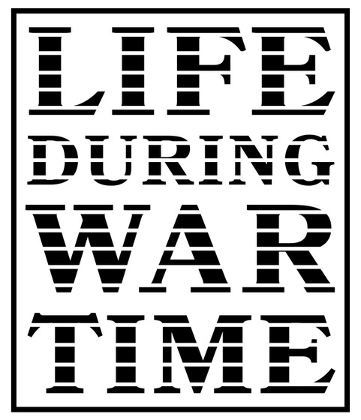
Newsha Tavakolian
“I head out to take pictures of the Corona crisis in Tehran. In Iran we are used to crises and we adjust quickly to new realities. I put on latex gloves, place a mask over my mouth and nose, and pack a sterilizer in my camera bag. The new normal. Streets that would normally be bustling with people and cars are deserted. I try to breathe through my mask. It’s suffocating. I feel as if I’ve stepped into some dystopian future.
“I pull the mask down. A sweet whiff of spring hangs in the air. Here this means the Iranian New Year is upon us. For millennia, way before Islam and other religions, Iranians would start their year celebrating the eternal cycle of defeat of light over darkness. On the first day of spring families, friends and loved ones gather to wish for a healthy New Year.
“But this year we are all told to stay home by the authorities. They mismanaged the crisis and are now at best struggling to contain it.”
“Iran is one of the worst hit places with officially 1284 dead and possibly many more. We don’t know where it will end and are worried.
“One of my favorite uncles, a tall and gentle giant, is fighting Corona. At home. All hospitals are so full that they have placed beds in parking lots and stadiums. ‘Stay home, don’t move, maybe you’ll live,’ overworked doctors told him. They gave him some pills. We hope he will live.
“The fear is everywhere. Fear of death, fear of the future. Fear of a terrible year ahead.”
“My past year has already been terrible. Like now with Corona, life forced me to stop and drop everything. It did so in a way I could’ve never imagined.
“I was one of those photographers that is always on assignment somewhere on the globe, capturing the suffering of others and trying to create awareness. There was predictability in my chaos: I always was running after deadlines, forgetting myself and those close to me.
“Life can smack you in the face, and boy it smacked me hard.”
“I was having dinner in Amsterdam, when my husband called me from Iran saying my sweet 64-year old father had just died of a heart attack in front of his eyes. Some days after the funeral, in a totally unrelated event, Iranian press authorities revoked my work permit for no reason, banning me from taking pictures in Iran.
“I was forced to make a hard pause. Good. Because more was coming.
“Two months later our housekeeper was killed after she was hit by a car in front of our building. No ambulance showed up and we had to wrap her in a blanket to get her body out of the street. My brother was diagnosed with lymphoid cancer and had to take chemotherapy.”
“I withdrew in our apartment. Nowadays we would call it ‘self-quarantine’, but for me it was plain old depression. My cameras stood gathering dust. For the first time since I was 16 I didn’t take pictures. I didn’t want to talk, I tried not to think.
“The pain forced me to face my problems. I was a workaholic always feeling guilty when I needed love or time for myself. My emergency stop broke my endless cycle of assignments and trips. The time it gave me, made me see life’s beautiful small details. From blossoming trees to the sparkle in my husband’s eyes: slowing down reignites your senses.
“Status, fame and most of all monetary growth; goals I had long thought were clear concepts, have become abstract and unimportant. My hard pause has made me feel freer and happier than ever.”
“That is why I walk the streets of Tehran with some mixed feelings. I’m afraid of what the future will bring, of loved ones dying, or even myself being in danger. But I take some comfort that this is a collective and global halt to everything. We are facing this ordeal all together, no one is alone in their house, because we all are. Pressure leads to unity.
“My mother’s phone rang the other day. It was another lady who had dialed the wrong number. They spoke for an hour, discovered that both their husbands had died that year. She hung up and laughed. ‘I feel good,’ she said. It made me feel good too.
“At the same time, Iranian people have been worn down by sanctions, unemployment and the threat of war. Some aren’t taking Corona seriously, and continue to gather and travel. A catastrophe might be in the making. Happy New Year and a happy spring to everyone, everywhere. May we blossom as a civilization.”
— Newsha Tavakolian, originally published in National Geographic, March 20, 2020.
About Newsha Tavakolian
(Tehran, Iran, 1981)
She lives and works in Tehran, Iran.
Newsha Tavakolian is a photographer. She began working for the Iranian press at the age of 16, covering wars in Iraq and a range of social issues in her native Iran. Over the years, her focus shifted away from journalistic photography to photography as art. Through her lens, Tavakolian explores social experiences in her homeland and human conflicts near and far. Tavakolian has photographed female guerilla fighters in Iraqi Kurdistan, Syria and Colombia, as well as prohibited Iranian female singers and the lives of others living under sanctions. Tavakolian was the fifth laureate of the 2014 Carmignac Gestion Photojournalism Award and the principle laureate of the 2015 Prince Claus Award. Tavakolian's work has found its place in the collections of major international institutions, including the Victoria & Albert Museum (London, U.K.), the Los Angeles County Museum of Art (LACMA), the British Museum (London, U.K.), the National Museum of Asian Art (Washington, D.C.), and the Boston Museum of Fine Art.
Artist website: newshatavakolian.com
Artist Instagram: @newshatavakolian
Gallery website: thomaserben.com

